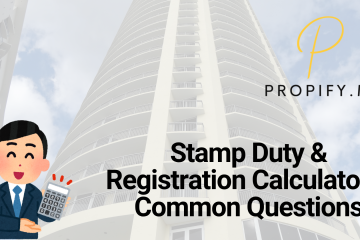
Essential Documents to Verify Before Buying a Property
When buying a property, ensuring you have all the necessary documents is crucial for a hassle-free purchase. Below is a comprehensive list of essential documents you must verify to make an informed decision and protect your investment. We’ll also discuss why these documents are important and the risks of neglecting them. Let’s dive in!
1. Sale Deed
The sale deed is the most critical legal document that acts as evidence of the transfer of ownership from the seller to the buyer. This document is legally binding and should be registered at the local registrar’s office to formalize the property transaction.
Why is it important?
The sale deed serves as the final proof of property ownership. Without this, the buyer has no legal claim over the property.
What to check?
Ensure the seller’s name matches the ownership records, and verify that all details about the property, such as the area and address, are accurate. Consult a legal expert to validate its authenticity.
2. Title Deed
This document confirms the ownership of the seller and ensures that they have the legal right to sell the property. It is essential to check that the title is “clear” and free of any encumbrances or disputes.
Why is it important?
A title deed provides assurance that the property does not have conflicting ownership claims, which could lead to legal complications later.
What to check?
Request a certified copy of the title deed and confirm its details with the local land registry. Look for any loans, liens, or disputes associated with the property.
3. NOC Certificate
A No Objection Certificate (NOC) is essential for confirming that the property is free from legal liabilities. Typically, this document is issued by local authorities, utilities, and other governing bodies.
Why is it important?
Without a valid NOC, the property might face legal restrictions or pending approvals. For instance, utility providers like water, electricity, and sewage boards issue NOCs to confirm that the property adheres to their regulations.
What to check?
Ensure that the NOC covers all relevant departments, including the fire department, environmental authority, and municipal corporation.
4. 7/12 Extract
The 7/12 extract provides detailed information about the land on which the property is built. It includes ownership history, survey number, area, and land type.
Why is it important?
This document helps verify the property’s legal history and ensures there are no disputes or pending claims over the land.
What to check?
Ensure the details on the 7/12 extract match the property’s records and consult the local land revenue office for cross-verification.
5. Approved Building Plan
An approved building plan ensures that the construction adheres to legal norms and building regulations. This document is issued by the local municipal authority.
Why is it important?
Unauthorized construction can lead to penalties or even demolition. An approved building plan provides assurance that the property is legally constructed.
What to check?
Verify the building plan’s approval date and ensure it matches the actual construction.
6. Encumbrance Certificate
The encumbrance certificate confirms that the property is free from financial and legal liabilities, such as mortgages or unpaid loans.
Why is it important?
It ensures that the property is not tied to any financial claims that could burden the buyer after purchase.
What to check?
Request an encumbrance certificate from the sub-registrar’s office and check for any entries indicating financial obligations.
7. Commencement Certificate
For under-construction properties, the commencement certificate indicates that the builder has obtained the required permissions to begin construction.
Why is it important?
Without this certificate, the construction may be deemed illegal, resulting in potential legal disputes.
What to check?
Ensure the commencement certificate is issued by the local municipal authority and verify its validity.
8. Allotment Certificate
The allotment certificate is typically issued to buyers of properties in residential societies or projects. It provides proof of the specific property allotted to you within the project.
Why is it important?
This document ensures that the builder or society has officially allocated the property to you, reducing the risk of disputes.
What to check?
Verify the details of the allotted property, including its location and specifications, against the original agreement.
9. RERA Certificate
The RERA (Real Estate Regulatory Authority) certificate ensures that the property complies with the rules and regulations of RERA. This is particularly important for new and under-construction properties.
Why is it important?
The RERA certificate offers transparency and legal protection for buyers, ensuring that the builder adheres to promised timelines and quality standards.
What to check?
Visit the Gujarat RERA portal and search for the project’s registration details to confirm compliance.
10. Banakhat/ATS (Agreement to Sale)
This is a preliminary agreement between the buyer and seller, detailing the terms and conditions of the sale. It serves as proof of intent and protects both parties before the final sale deed is executed.
Why is it important?
The ATS outlines the agreed price, payment schedule, and possession timeline, ensuring clarity and mutual consent.
What to check?
Ensure that all terms and conditions are documented clearly and signed by both parties. Consult a legal expert to validate the agreement.
Risks of Not Verifying These Documents
Neglecting to verify these documents can lead to serious consequences, such as:
- Legal disputes over ownership.
- Financial burdens from hidden liabilities.
- Demolition of unauthorized structures.
- Loss of investment due to fraudulent sellers.
Taking the time to verify these documents not only protects your financial interests but also provides peace of mind.
How to Simplify the Verification Process
- Consult Legal Experts:
Hire a property lawyer to scrutinize the documents and provide professional advice. - Use Online Portals:
Platforms like e-Milkat and Gujarat RERA make it easy to cross-check property details. - Request Certified Copies:
Always ask for certified copies of key documents to ensure their authenticity. - Engage a Real Estate Agent:
A reliable agent can guide you through the verification process and provide insights into the local market.













